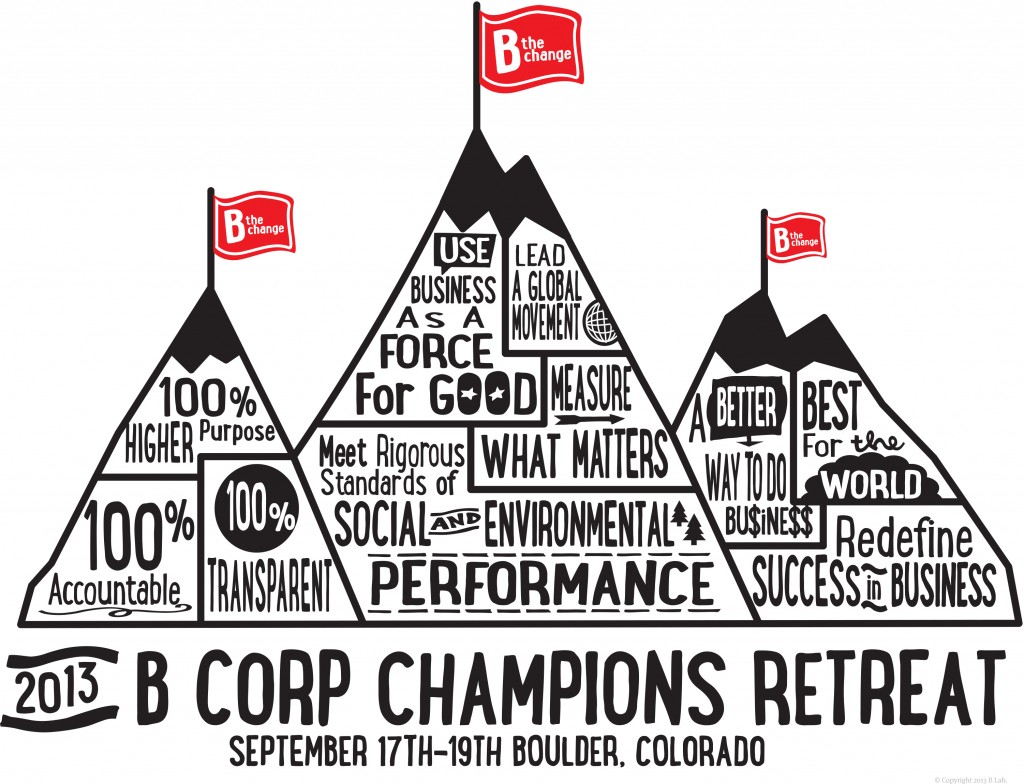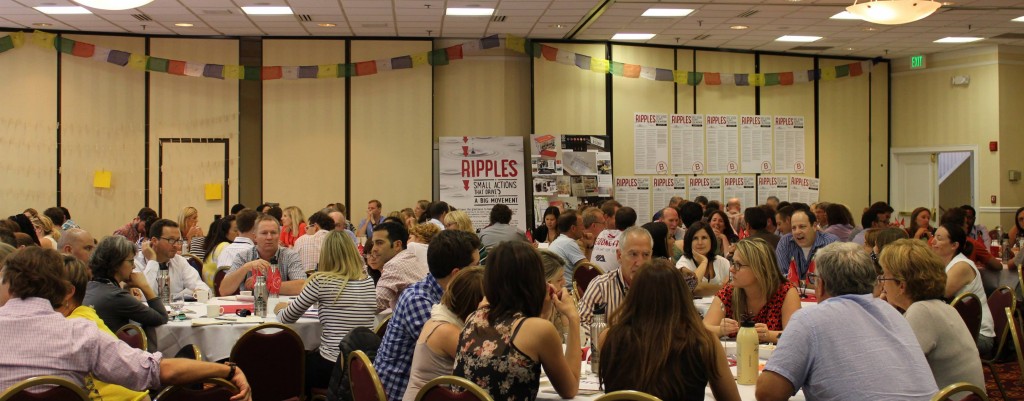At the B Corporation conference in Boulder a few weeks ago, it felt like there was tremendous change in the air. It wasn’t directly from the floods which had only recently heavily damaged much of the city and, unfortunately, created much loss of life and property in the nearby area. Rather, the community of B Corporations—and the B Lab team that made it possible—had come together to challenge each other to challenge how modern business is conducted. As I’ve said before, I sought certification for our company because I believe the Mad Men days are over—business has a responsibility to generate attractive returns but should also do no harm and should benefit all. In fact, this is a challenge within a challenge.
In my previous life, I worked at the Rockefeller Foundation helping to develop a program called Next Generation Leadership, founded by Jacqueline Novogratz (now heading Acumen). The program’s mission was to find and develop a diverse group of American business, nonprofit, government and cultural leaders and to provide a space for them to connect, learn and, importantly, challenge each other’s ideas, assumptions and ideologies. The goal was to find and shape a better path toward civil society and grassroots democracy.
At the B Corp conference, I had a chance to reconnect with one of those NGL fellows. What I also found there was that the people representing the B Corp community are a kind of logical extension of that fellowship, a natural outgrowth if you will. It was my first chance to meet fellow business leaders who care deeply about the future of the planet, about our global social compact, and about the legacy we leave future generations. In essence, I felt at home again.
While the 250 B Corp attendees had different businesses, backgrounds, and beliefs, each one was there to bring their very best ideas and to learn from and challenge one another. To a great extent, the ethos was not a conforming one; it was a place where dissent and difficult conversation was welcome.
For example, I had the opportunity to moderate an Aspen style conversation on Dr. Martin Luther King’s 1963 Letter from a Birmingham Jail. In our discussion, I brought up whether the “movement” of benefit corporations could be said to represent the moderate white church leadership seeking to keep the status quo or the civil rights movement working to change the fundamentals of social justice at that time. No one at the table blinked—I think we all recognized that there were seeds of moderation, truth telling, and true action—in the B Corp Declaration that we all signed.
Other Observations
- When I arrived in Boulder, I believe there were less than 800 B Corporations worldwide. When I left there were 830. The movement is growing quickly. I can see a time in a few years when this annual event will seem very small.
- To that point, I had previously not understood the true impact of having the state of Delaware become a “mecca” for benefit corporations. A piece at Huffington Post by the Governor himself explains how this changes the landscape of corporate business (in the US). It gives companies the option of becoming a benefit corporation and offers them fewer excuses for not doing so.
- The number of companies manufacturing products sustainably—and in North America by North American workers—is growing. I particularly like the “Nothing Wasted, Everything Gained” philosophy of Preserve Products, who makes toothbrushes, yogurt tubs, and other commonly used disposable goods.
To our Canadian friends and colleagues, wishing you a very happy and healthful Thanksgiving from all of us.



